Your basket is currently empty!
-
Jess’ Story
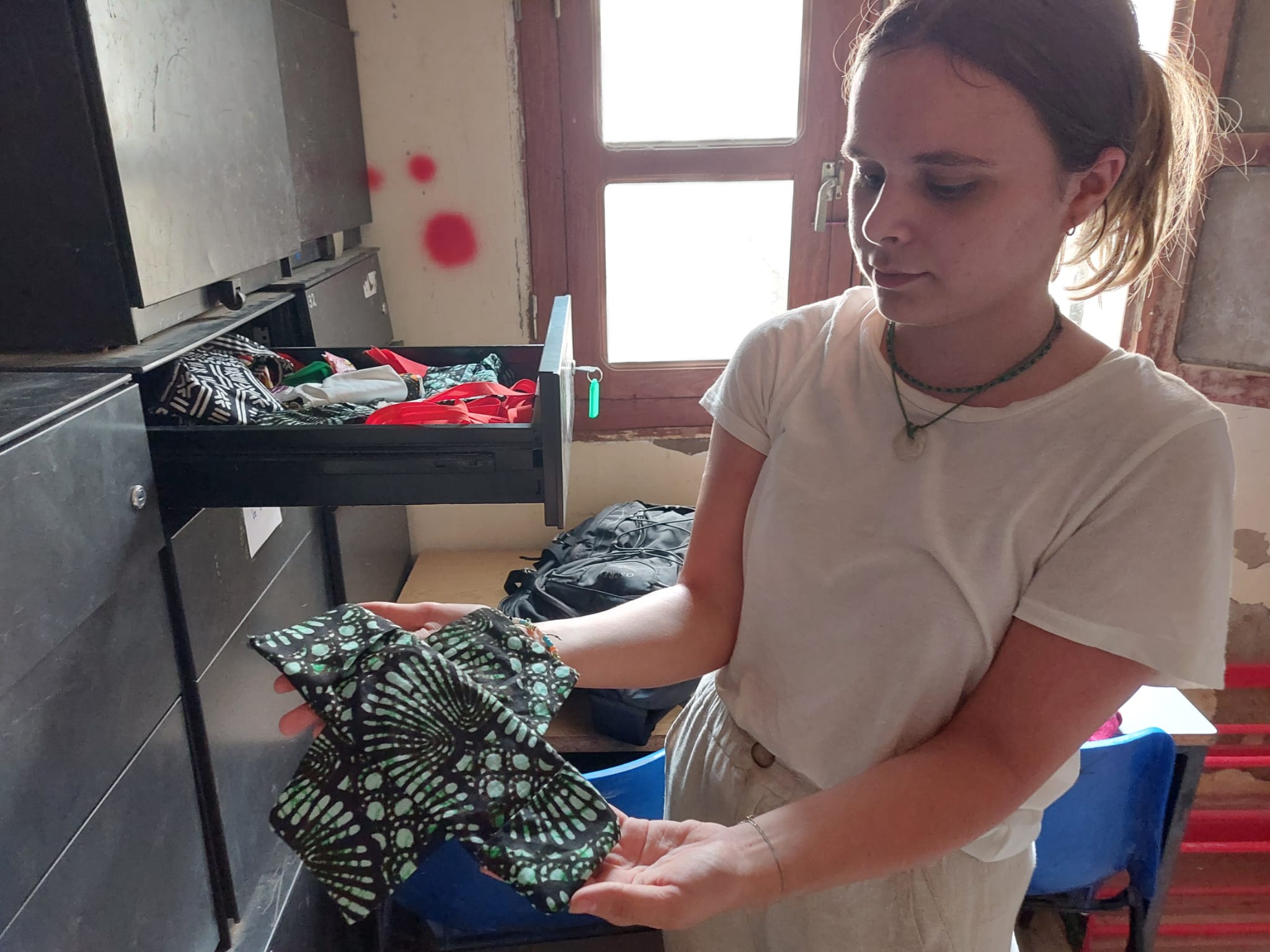
I am currently on a 10-month teaching placement in Senegal. As I am 22 years old, my Project Trust journey has been slightly different to the typical volunteer as I am one of the first to embark on the extended age range group. Doing a year overseas after university has suited me perfectly. A gap year was always something that appealed to me, however, in school I fell in love with my subject so I decided to go straight into university to study it. This was something I always reflected on and I couldn’t help but be envious when seeing the fantastic work that the Project Trust volunteers were doing on their placements. As I was approaching the end of my undergraduate degree, I was left with the often feared question of what was next for me. Although I was confident in my future career choice, the prospect of going straight into the workplace was something that didn’t sit quite right with me. I had a strong desire to see a new, vastly different part of the world and to experience another culture. As the working world is increasingly demanding, with employers looking for more experience now more than ever, I knew I wanted my gap year to be structured and well-established. When I saw that Project Trust had extended to university graduates, I thought this would be a perfect opportunity for me to meet all the criteria that I was seeking.
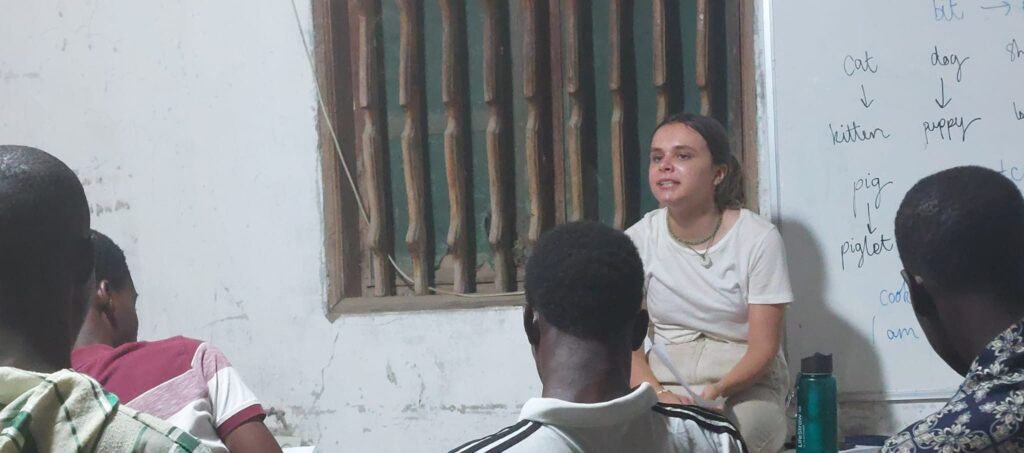
My Project Trust experience has been unforgettable. I have learnt more about the importance of culture, religion and languages in these past few months than I have throughout my whole lifetime. Connecting with people in Senegal has been simple in some ways yet challenging in others. We speak different languages, share different religions, eat different food and wear different clothes. However, we all have one belief in common, that a good education is a very powerful tool. Therefore, this has made it easy for me to implement this passion of mine onto committed and hardworking individuals. In my placement, I am teaching English in a community centre. However, my project doesn’t stop there as I have started an enterprise which makes reusable sanitary products for females in the community. As this is still a taboo subject within the area, often forcing girls to miss days off school each month, I quickly realised the importance of implementing a subtle and sustainable solution for the girls.
Approaching a year abroad at an older age has been really rewarding for me as I came into this year with more experience. Unlike younger volunteers who, for example, may be experiencing living away from home for the first time, I was already comfortable with this feeling therefore it has been less intimidating for me in this regard. That isn’t to say you won’t learn anything during your year overseas. The possibility for personal growth is unmeasurable. I have learnt how resilient I can be, proving to myself that I can bounce back when things are challenging. I have enjoyed taking a year overseas after graduating university as I have viewed this year with a more focused outlook on what I want to do in my future career. This has meant I am continually thinking about the skills and knowledge that I am learning at my project and how this can be transferred and integrated into my job back home.
My year overseas was also very different to the usual year as I had to fundraise during a pandemic. This was an immense challenge as a lot of the typical fundraising opportunities were taken away from us. However, it was a chance for me to get creative. During your time at university, you meet many people and make countless connections. Therefore, I think fundraising during university only increases your chances as you have more networks. Although there are some clear obstacles with raising money at this age, such as your university peers being less likely to offer large donations, preparation and organisation is key here and if you can implement these factors then it is an achievable goal.
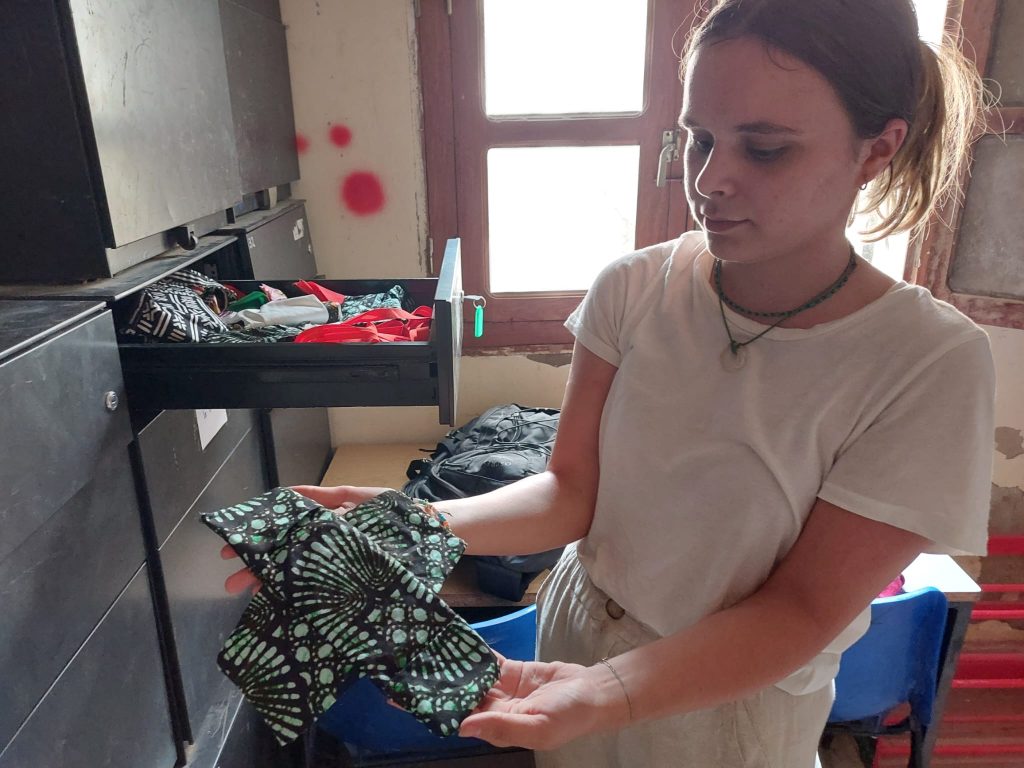
I would strongly encourage any graduates to embark on a year-long journey overseas with Project Trust as it can allow you to truly make a difference within the community and allows you to submerge yourself in a new culture. You will learn skills such as resilience, compassion, leadership, adaptability and interpersonal communication. I am very grateful for this opportunity as it has made me confident in my future career choice and has granted me the chance to fulfil my desire to live in a new and unique country while also enhancing my CV. The connections you make during your year abroad are simply not possible back home and I am confident that the knowledge I have learnt from the people I have met here will remain with me throughout both my working and personal life.
-
Senegal Stories
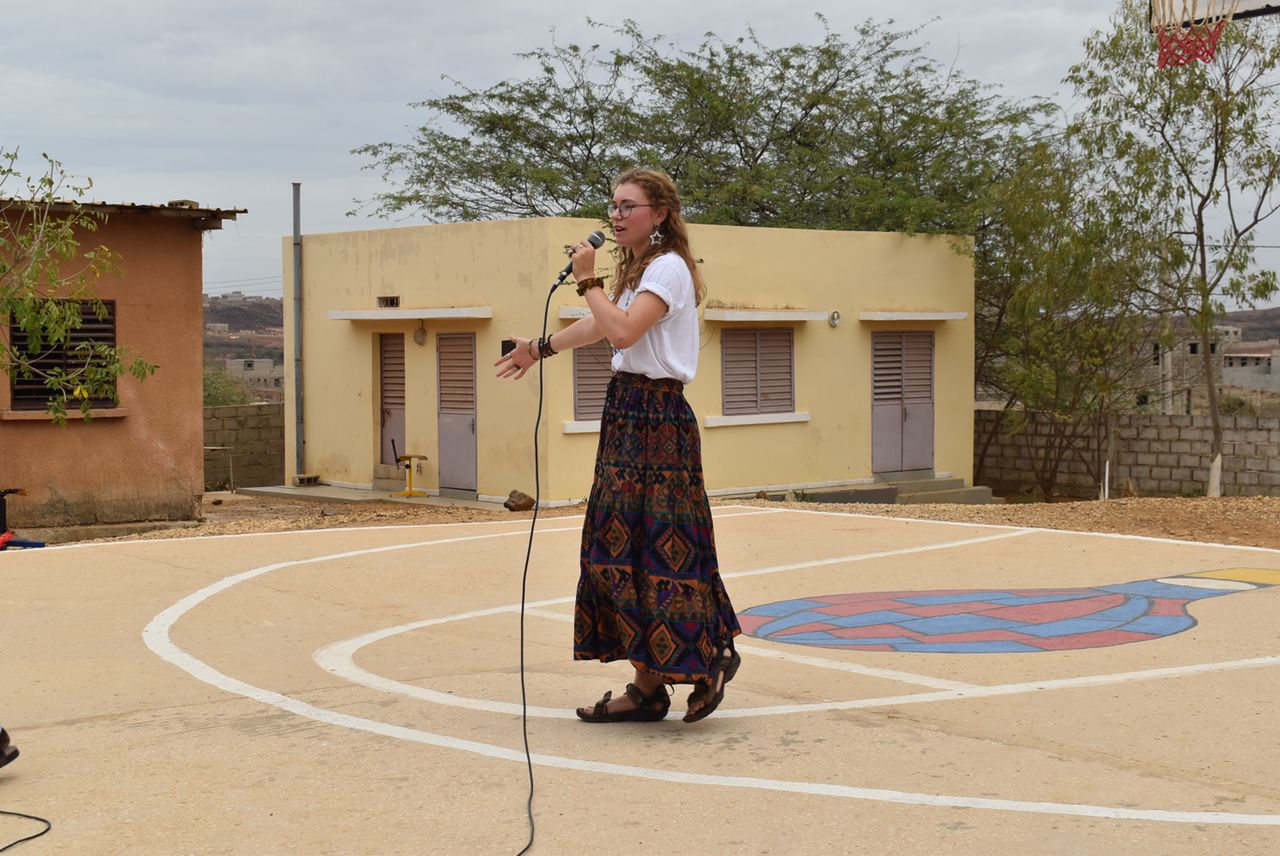
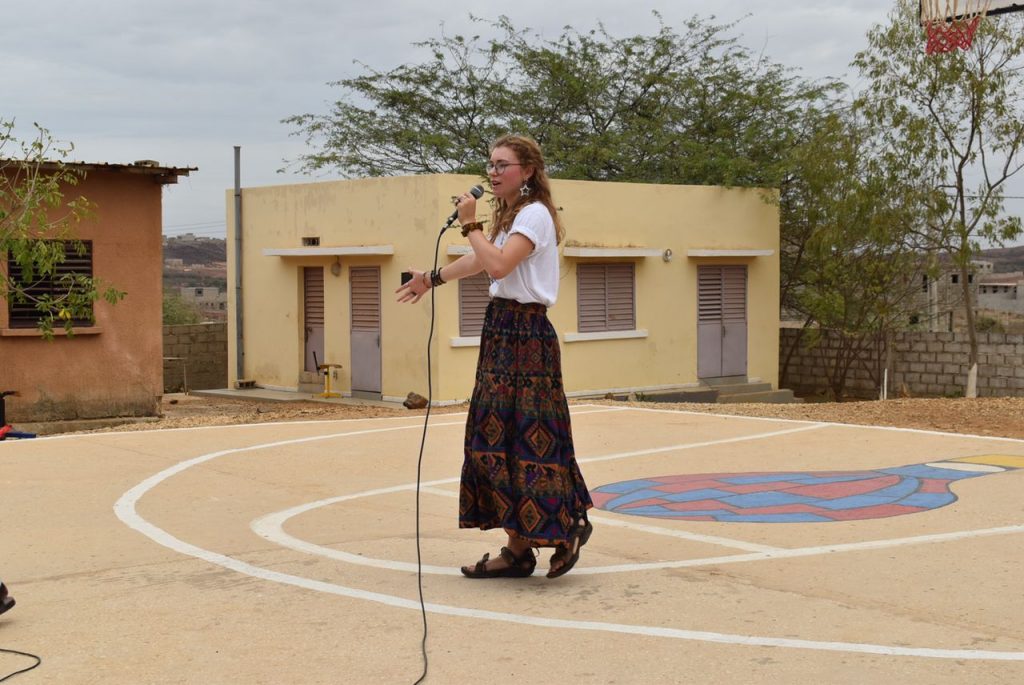
Current Senegal Volunteer Stephanie Wells kindly shares with us her experience of her PT placement thus far;
“The opportunity to teach English locally and work alongside a rural community in Senegal has been valuable beyond belief. I’ve learnt about myself, developed huge independence, refined my spoken French and discovered what it really means to serve others. Below I’d love to share a few highlights from my journey. All, I realise, have come from a realisation and cultivation of progress. You can find more on my blog senegaladventure.wordpress.com
The first memorable moment, predictably, was my very first class. I walked in with advice from the week of training PT provided, a short TEFL course of theory, a detailed lesson plan, two cylinders of chalk in hand, and a heap of anticipation. I felt relatively well prepared. Nothing fully equipped me for that new feeling of leading a class though. My eyes darted around the room full of pupils, voice wavered while explaining, and my hands were so shaky writing the first exercise on the board a student couldn’t read it. ‘Madame Sali, I not understand.’ Salimata is the Muslim name I have been given here. Although nerve-wracking, I look back on this class – set on introductions and hobbies, I think – with such pride, because now – four months on – I’m leading the same group with confidence and self-belief, alongside several others too. So much rests on the students’ attitude to learning, but, as the PT staff assured me back during training, a smile and some ideas to make the subject seem fun can go a long way. The students even stood up clapping at the end of a class they particularly enjoyed last week – we had made a dance together to act out the different prepositions.
Speaking of dance, each returned volunteer I’d heard from before departure told of making the project their own by bringing skills and talents to share with the establishment they were assigned to. I’m a keen performer, so another joy I’ve found in the school has been launching and leading a dance club. Twice a week, a group of about ten of us assemble together on the school basketball court, often tired and dreary after a day of lessons. I blast some tunes through a little speaker and we get moving. It’s the best feeling, seeing the energy and positivity that’s created, and occasionally we even get the basketball club members joining in. As the group’s improved I’ve given the reigns to them more and more with choreography. Often, when split into groups, they make some lovely pieces which they perform for one another at the end of the class. Alongside commitments at the Lycée (high school) site, I’ve also helped out in a few P.E. classes, held on a spacious, sandy patch outside the village’s small stadium, usually first thing in the morning. Although tiring, this has had similar morale-boosting effects for both parties involved.
A particularly rewarding aspect of teaching has been running 1-1 tutoring sessions, with students around school that find English particularly difficult. They fall behind for a number of reasons; often because of missed classes due to school strikes or a complicated home life, or sometimes it’s a lack of self-esteem and confidence to speak up in class. Through the intense nature of these sessions – a stark contrast to teaching a room full of seventy students – I have been able to give them sessions tailored to exactly what they need to work on, as well as provide lots of verbal practice of the language – sometimes neglected in big class settings. One example is Fatou, a fifteen year old I’ve been working with since early January. Her written English was strong, but speaking was a challenge, and she was slow and tentative to form full sentences. We’ve been covering vocab and topics such as school, routines and interests, all in a verbal format. Last Wednesday she performed her full daily routine for me, announcing each part in complete, detailed sentences as she acted it out, using items around us in the library as props.
As I’ve got to know members of the local community, a few individuals have expressed a desire to learn some spoken English too. So much so that my repertoire of weekly students now extends to a clothes vendor I once bought a shirt from, and a young mum of seven down the street from our family home. The latter of these, named Awa, rarely gets the opportunity to leave her home except for food shopping. We’ve befriended each other and exchange lessons. I’ve loved getting to know her, through a combination of broken French and Wolof, the mother tongue, and she teaches me this with a fierce attention to pronunciation – I couldn’t be more grateful. Hearing the slow but steady progress she makes each week in English gives me such a boost, and it’s amazing to hear it does the same for her. After a brief session on a Sunday afternoon, where we covered a bit of Geography and vocabulary describing distance, she once said to me in French, ‘You’re bringing the world to me, Sali.’
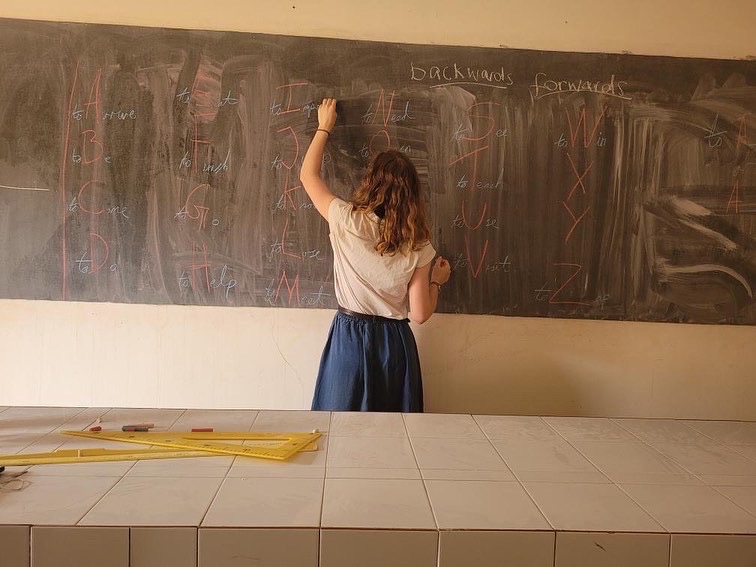
As well as building public speaking and improvisation skills, teaching has also given me a profound appreciation, in retrospect, for the teachers I’ve been taught by in the past. Ironically, I think the students I see on a weekly basis have unknowingly taught me far more than I’ve taught them, but that’s the beauty of spending a year in a profoundly different environment. The challenges crop up in unexpected places but learning to navigate them has also been a form of schooling in and of itself. I’ve grown to understand the intricacies of the roles of Teacher and Student; the border between them is not clear cut, and lessons extend far beyond the realms of a concrete classroom. I have no doubt this unique experience with Project will encourage all of us volunteers to throw ourselves in to any educational opportunities in the future – whether they lie within or beyond the boundary of our comfort zone.”
-
A Day In The Life…
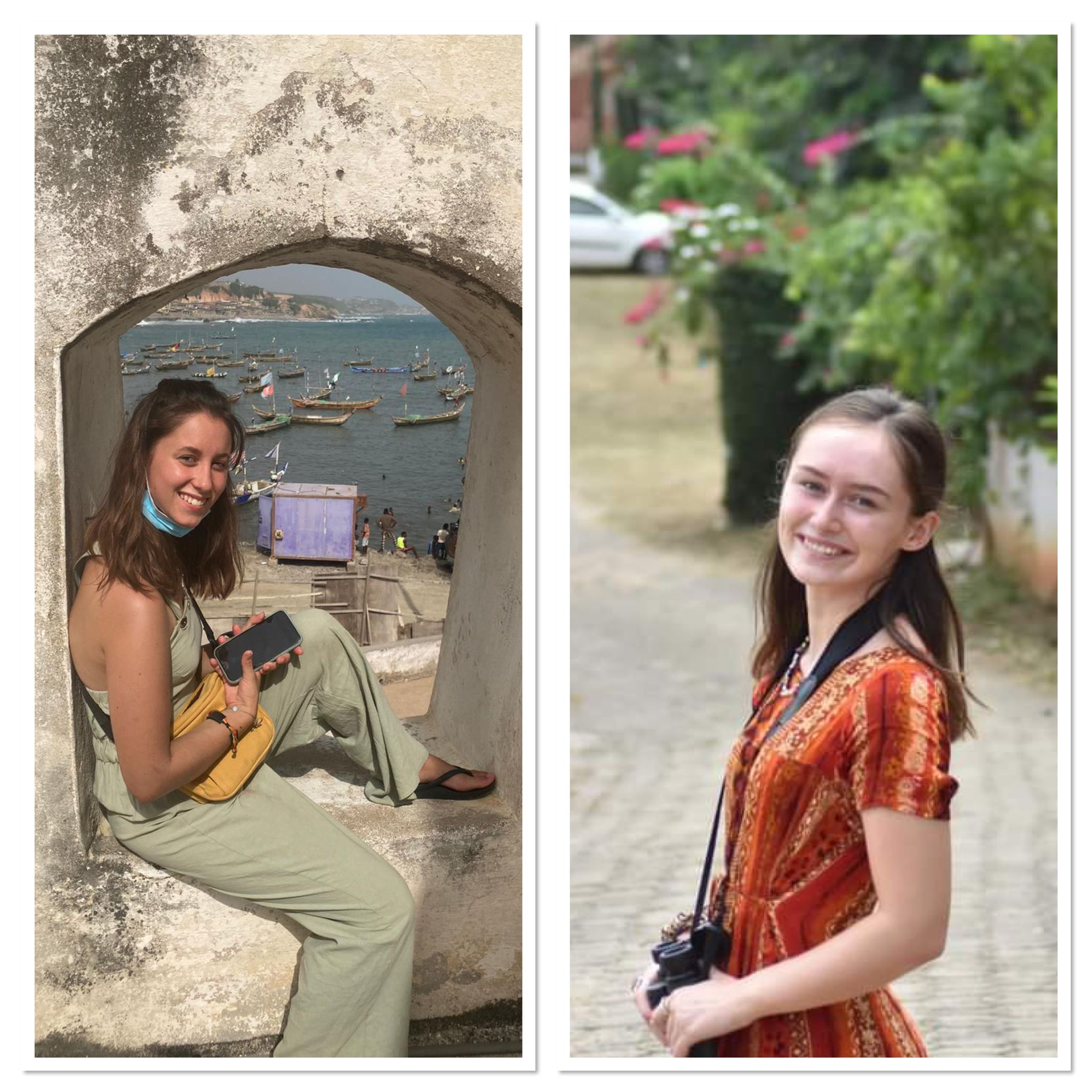
Current Volunteers Choe Hood & Ella Fraser share with us a day in the life of a teacher volunteer…
They are currently volunteering in Ghana, and both are living in the Volta region, In a small town called ‘Akatsi’. Chloe is teaching English and Ella is teaching Maths in a basic school. Monday – Friday.
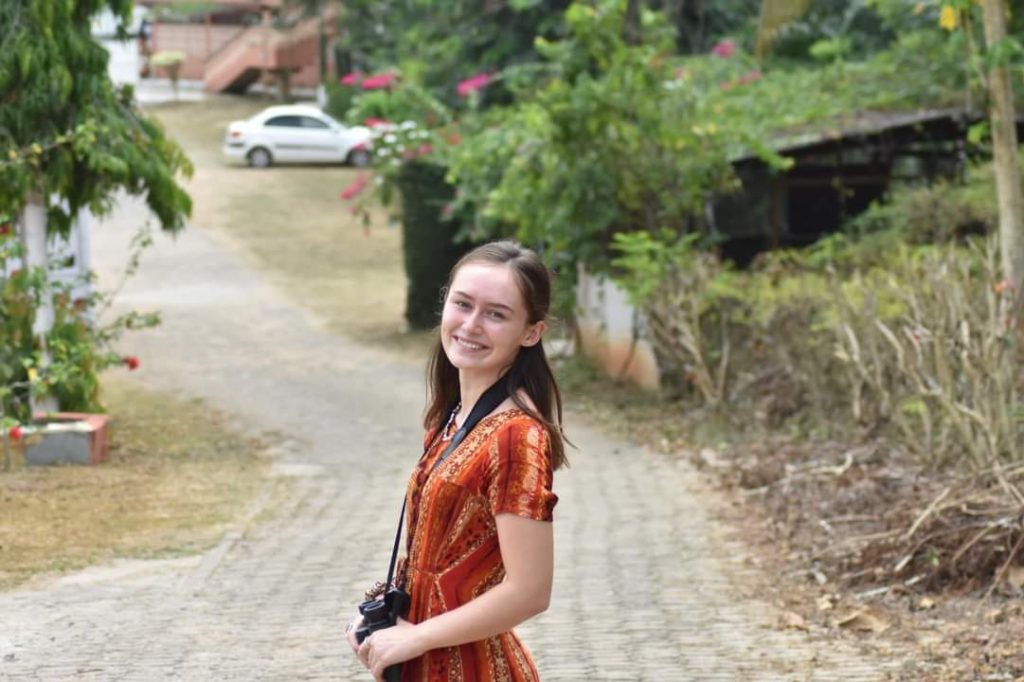
Chloe Hood “Our alarms go off at 6am and we often get up and sweep the compound outside the house. Some days are definitely harder to get out of bed than others. It’s tradition that the women especially must do so before anything else. We sweep the sand, to make the compound look clean and tidy. We have a small gas container so often put some water in the pot to heat up so that we can have a tea on our walk to school. We like to walk to school in the morning, as it’s the only time that the heat is bearable to walk in. On our walk, we often pick up a local Ghanaian breakfast, the lady expects us most mornings! Our students line up under the tree for assembly each morning and sing a few songs before starting lessons at 8am. We often finish the songs with a prayer…. Lovely start to the day! Primary school tends to work per level rather than age. You start school, when you can afford to do so however as of 2017 our school changed to a government school, which is one of the very few schools around our town, that is free. We are teaching primary six, age ranged from around 11-17. We have a timetable and teach one lesson a day. However, in-between we often help in other classes. While we aren’t teaching, we plan our lessons, read our books, or write a diary. Break and lunch time is always fun! Although it’s very hot, we often play with the children. We’ve taught them a numerous amount of team games such as, rounders, capture the flag, football, table tennis, skipping etc. When we first came to the school, it had no P.E equipment whatsoever. We have introduced a library lesson to our school. The children are growing and learning more each day. We found that their facts were always pretty good however their creative writing skills were what needing improved. This was purely due to lack of reading, not having the chance to have seen a movie etc. As well as teaching English, during the week we have been asked to do P.S.E and on a Friday we are the dedicated P.E teachers. We often eat the local Ghanaian dishes while at school. When you are eating, it is expected that you “Invite” the other teachers to join. We finish teaching around 2pm. Everyday, we go to a little stall to get a fanIce, which is a lovely ice lolly to cool us down! Depending on the temperature, we then decided if we are walking or taking a transport home. As you walk the streets, everyone will greet you. Everyone you pass, will welcome you. We have never met a friendlier community. Before coming to Ghana, we felt scared of my safety but actually we haven’t once felt unsafe in our community. The locals look out for you, more than we could ever imagine. They all treat us as if we are their own family.
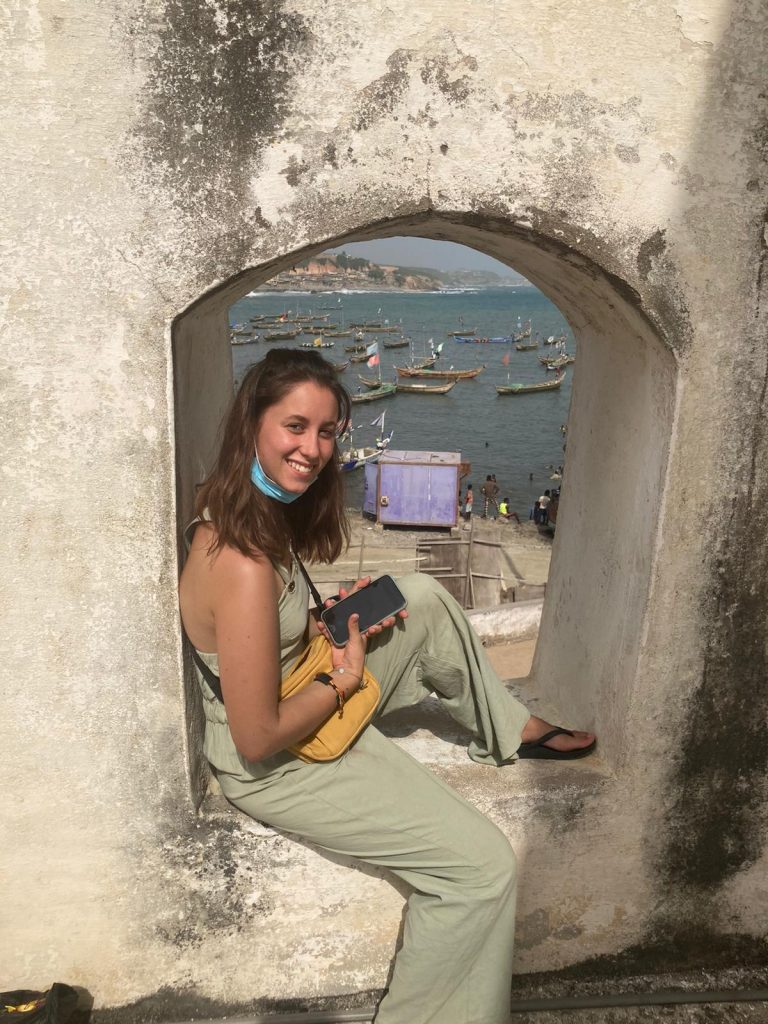
Ella Fraser Once we are home, we often cook lunch and sometimes we cook for the children in our community if their parents are not home. Some days, we head out around 4pm with the children in the community and play games with them at the local “Football pitch” – sand pitch. Although, some days we are very tired due to the heat, and we will come home and sleep for a few hours and just rest! Each day tends to be different. We cook around 6pm, as we often try and have an early night before a busy day the next day.”
